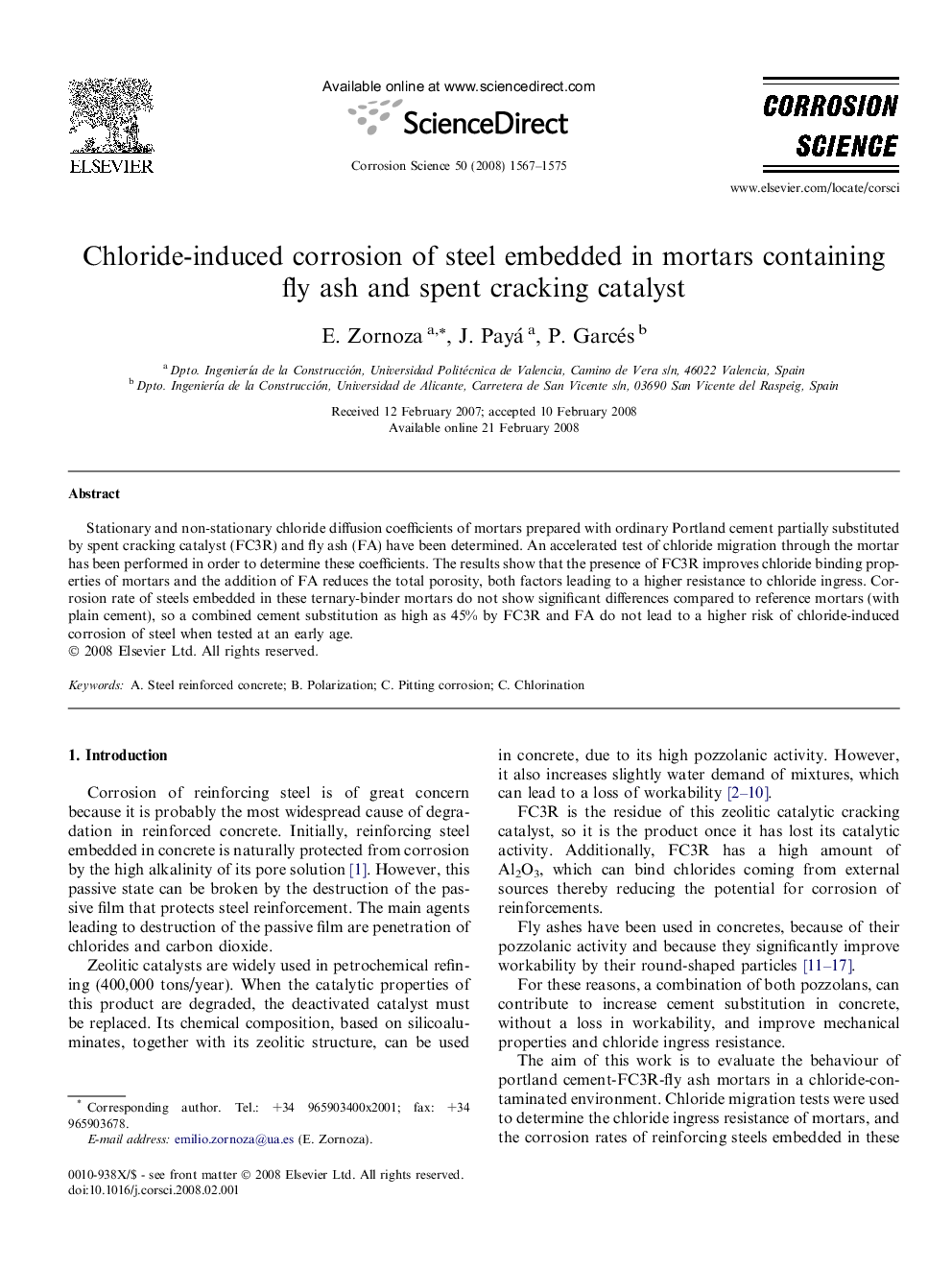| Article ID | Journal | Published Year | Pages | File Type |
|---|---|---|---|---|
| 1471644 | Corrosion Science | 2008 | 9 Pages |
Stationary and non-stationary chloride diffusion coefficients of mortars prepared with ordinary Portland cement partially substituted by spent cracking catalyst (FC3R) and fly ash (FA) have been determined. An accelerated test of chloride migration through the mortar has been performed in order to determine these coefficients. The results show that the presence of FC3R improves chloride binding properties of mortars and the addition of FA reduces the total porosity, both factors leading to a higher resistance to chloride ingress. Corrosion rate of steels embedded in these ternary-binder mortars do not show significant differences compared to reference mortars (with plain cement), so a combined cement substitution as high as 45% by FC3R and FA do not lead to a higher risk of chloride-induced corrosion of steel when tested at an early age.
